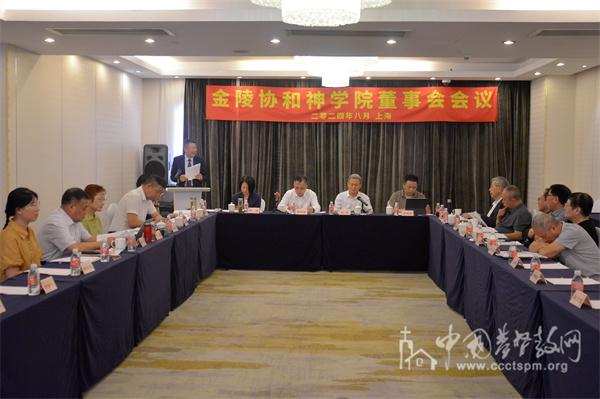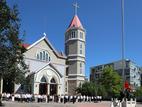The re-election meeting of the Board of Trustees of Nanjing Union Theological Seminary was held in Shanghai.
The meeting was chaired on August 7 by Rev. Gao Feng, the then chairman of the board, said CCC&TSPM. Rev. Chen Yilu, former executive vice president of the school, presented a work report on the national seminary, reviewing the school's development over the past decade and summarizing achievements in education, talent cultivation, faculty development, academic research, campus construction, student affairs, and international exchanges.
Rev. Chen Bin, former vice president of the school, delivered a financial report on the seminary, detailing its financial status since 2015, including income and expenditure, and the usage of funds. The attending trustees acknowledged the seminary's work over the past decade and offered suggestions on faculty development, research on the sinicization of Christianity, seminary management, and correspondence education.
They discussed and approved the proposed list of new board members and the chairman. Chairman Rev. Xu Xiaohong of National TSM was elected as the chairman of the board of trustees and presided over the afternoon session of the new board meeting.
Rev. Lin Manhong, vice president and general secretary of the China Christian Council (CCC), presented proposed amendments to the "Articles of Association of the Board of Trustees of Nanjing Union Theological Seminary." Attendees discussed and approved the proposed list of new seminary leadership, with President Rev. Wu Wei of CCC as the president of the seminary, Li Jiangyue as vice president, and Rev. Wenge as the person responsible for academic affairs at the seminary.
Chairman Xu Xiaohong presented the letters of appointment to the newly elected board members and seminary leadership. In his speech, the newly appointed President, Rev. Wu Wei, expressed his determination and confidence in leading the national seminary and outlined his vision for the future work of the school.
With more than 3,000 past graduates, the national seminary currently holds five graduate courses for pastoral studies, multiple Bible training, and correspondence courses. It trains a very significant amount of the talent of the Chinese church. As the highest institution of Christian learning in China, the seminary is also the earliest and largest national religious institution and an important base for nurturing Christian talent.











